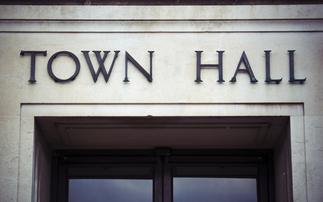EU's top climate official warns 'painfully slow' negotiations must be accelerated to seal a meaningful global emissions pact at Paris summit
With 100 days to go until the Paris climate summit, the EU's climate chief has warned that progress in thrashing out a draft negotiating text is proceeding too slowly and urgently needs to be stepped up.
Miguel Arias Cañete, the EU's climate commissioner, said that the 85-page draft agreement currently being poured over by diplomats still contains far too many bracketed options that need to be rapidly narrowed.
"In the negotiating rooms, progress has been painfully slow. The technical talks are seriously lagging behind the political discussion and this must change," Cañete told a press conference in Brussels. "The window of opportunity... is closing fast."
The alarm call from Brussels follows sharp interventions from the UN secretary-general Ban Ki-moon and French climate ambassador, Laurence Tubiana in recent weeks.
Cañete called for diplomats to show flexibility, and move beyond their negotiating "comfort zones" as a matter of priority. "When it comes to substance, the text is still far too long, with all options put forward by countries still on the table. This has to be negotiated as soon as possible," he said.
Climate pledges have now been received from 56 countries, which collectively represent some 61 per cent of global emissions. But these INDCs (Intended Nationally Determined Contributions) are not thought ambitious enough to chart a course for limiting global warming to the UN target of 2C.
An analysis by the Grantham Research Institute on Climate Change earlier this week found that pledges made so far would have to almost double by 2030 to have a more than 50 per cent chance of limiting global warming to 2C.
Cañete confirmed that the bloc would not back an agreement "on the basis of a minimal level of common agreement".
The EU believes that any successful deal will need substantial emission cutting goals, a five-yearly review process to increase ambitions until the 2C target is met, ambitious goals for 2050 and 2100, and robust transparency and accounting rules.
But deeply-ingrained divisions have plagued negotiations in Bonn over issues such as financing for a $100bn-a-year climate finance pot due by 2020, and the distribution of emissions cuts between rich and poor countries.
The EU and US also disagree sharply over the legally-binding nature of any global pact, although Cañete stressed that the bloc's alliances are evolving and provisional.
"We're playing different chess games at the same time, and with different strategies. But the objective is clear," Cañete said. He called on the US and other countries opposed to placing emissions reductions under legal sanction to come forward with alternative ways of monitoring and correcting unfulfilled commitments.
G20 countries such as India, Brazil, Saudi Arabia, South Africa and Turkey needed to submit their INDC's "without delay," he added.
This article first appeared at the Guardian
BusinessGreen is part of the Guardian Environment Network







